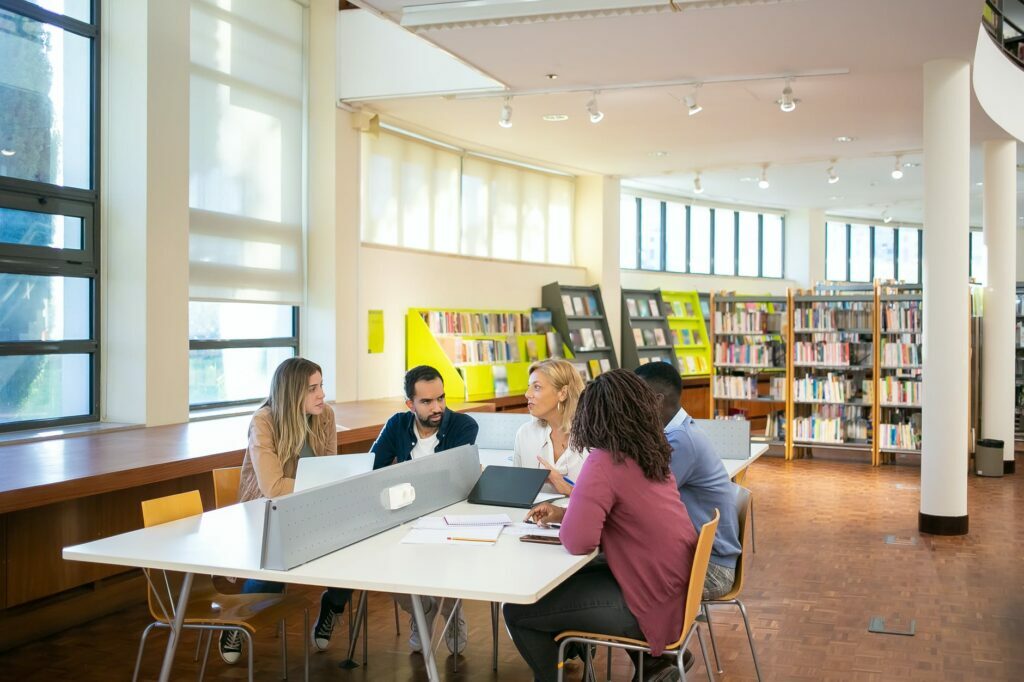As a teacher, communication culture is an integral part of the student’s education and learning process. Regardless of the subject, it can be very difficult to communicate and generate interest and participation in the class. The development of mutual respect and the teacher’s perception of authority is also important for student-teacher dialogue. Whether you are a school teacher or a tutor, communication is important, and you want to “build a better relationship” with your students.
For this reason, we have compiled some tips for improving communication between teachers and students.
1) Active Listening
A solid communication culture only works if you actively listen to your students. As a teacher, it is important to listen to your students and learn to understand their thoughts and ideas. By listening positively, you can deepen your empathy and understanding of your students and better assess your youth’s understanding of what they have learned. Students feel they are listening, which is a great help in strengthening relationships.
2) Create a Supportive and Reliable Environment
An environment of trust and support where students feel their concerns and help is critical to the success of their class. This includes showing students that you are friendly and able to deal with the problem. Show students that their ears are open in the event of a problem. All students have different intellectual abilities and learning speeds. Therefore, it is imperative to be aware of this and provide additional support as needed. It also means that students are comfortable during class, dare to ask questions, and know that the class is a safe place to be ridiculed. Another great option is to sponsor a group project in which students collaborate rather than competing for grades and awards. This approach has been found to facilitate teamwork, collaboration, and open dialogue between students and teachers.
3) Practice Praise and Positive Reinforcement
It is often easier for teachers to get angry with the student’s behaviour and emphasize what is wrong. But in reality, this leads to the fact that your students can be discouraged and have a lasting negative impact on their learning process. Admiring a tutor is especially important because many teenagers are dissatisfied with having to be a tutor anyway when you offer a tutor. Focusing on success can increase student confidence and encourage them to continue to challenge, whether small or large. Do not focus solely on the big picture or evaluate your grades or final results. You need to praise your students for small achievements and milestones. Whatever it is, your praise and gratitude will not be overlooked. It strengthens communication and develops mutual respect.
4) Pay Attention to Non-Verbal Clues
By actively observing students and paying attention to nonverbal communication, you can get a lot of information about their condition. Posture sends many signals. If the student is nervous when talking to you, he’s not doing well. You can read a lot of postures, gestures, facial expressions, etc.
But your students also react very strongly to it, so pay attention to your posture as well. Do not look out the window when talking to students. This can be indifferent, and the student may not feel noticed or heard. As a result, students may become louder and try to attract your attention.
5) Challenge Students with Interesting Tasks
Nothing is more damaging to student-teacher dialogue than poorly prepared lessons and repetitive and monotonous tasks. This leads to unstimulated and boring students. Set challenging tasks related to the student’s daily life. We don’t always go back to the challenges we’ve been using for years. If you work hard to convey this to your students, they will be more active and intrigued. Don’t be afraid of rewarding (but solvable) tasks. Discussions and questions create a lively communication environment.
